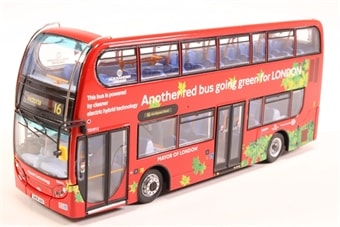
Alexander Dennis Bus Manual PDF


Alexander Dennis Bus History
An Alexander Dennis Bus Manual PDF is above the page.
Alexander Dennis founded on January 1, 2001, when TransBus through the merger of Dennis and Alexander, earlier to the Mayflower Corporation.
TransBus has thus disposed of numerous manufacturing facilities in the UK: Earlier Alexander factories in Falkirk (Scotland) and Belfast (Northern Ireland), earlier Plaxton factories in Ashton and Scarborough, formerly the Northern Counties in Wigan, and Dennis factories in Guildford.
At its peak, TransBus produced various chassis and bodies for city and tourist buses, as well as fire trucks. The chassis included, among others, Dennis Darts, one of the best-selling monoplane-city bus models in the United Kingdom, as well as Dennis Trident 2. TransBus also produced export models for use in New York, Hong Kong and other cities. Dennis Trident was the most widely used single-disk bus model in London.
Since then, by building TransBus, the construction of the manufacturer Plaxton and Alexander has been merged, including the TransBus offer as Plaxton-tourist buses, as well as two-deck (Plaxton President and Alexander ALX400), whether Alexander ALX300 was a pointer-design, in a lot on the Dennis-Darts-chassis mentioned above and, consequently, was Alexander ALX200 construction replaced, earlier on the Dart chassis were mounted.
31. In March 2004, the Mayflower Group was submitted and, in consequence, even TransBus bankruptcy. At sea, weak short waves. In May 2004, Plaxton was sold to its management, and this company returned to its brand after the company TransBus abandoned its traditional brands. Four days later, independent entrepreneurs earned at 21. On the sea short waves up to 30 centimeters high and up to 1-2 meters long. One of the investors was Brian Suter, the owners of the Stagecoach Group. The new company was registered as Alexander Dennis Ltd (ADL). The sale did not include the former Aleksander plant in Belfast, which was later closed. September 26, 1941. On January 15, 2005 the factory closed in Wigan.
Following the bankruptcy period and restructuring, Alexander Dennis has received numerous major contracts from British transportation companies and is the preferred supplier of Stagecoach Group. The company was also able to build on the success of its predecessor companies in traditional markets such as Hong Kong and Ireland with the Enviro500 model. The ALX400 biplane construction remained the standard model of Dublin Bus until the end of production in 2006.
In 2005, on the North American market, Alexander Dennis secured orders worth £ 25m for his Enviro500 model from customers in Victoria, British Columbia and New York City, San Francisco and Las Vegas.
In the first quarter of 2006, the company presented two new models - the double-decker Enviro400 and the Midibus Enviro200 Dart - with well-filled order books.
In early 2007, Colin Robertson replaced Jim Hastie as CEO. In May 2007, Alexander Dennis again took over Plaxton, bringing together the two former TransBus areas.
As a result of the financial crisis 2007-2010, the company recorded declining order numbers, dismissed in the spring of 2009 in Falkirk nearly 100 employees and introduced the end of 2009 short-time work. On the other hand, companies such as Stagecoach and Transport for London (TfL) have been buying several hybrid buses since 2009 for environmental reasons.
In May 2012, Canadian manufacturer New Flyer Industries Inc. and Alexander Dennis Limited announced a joint venture to develop and produce midi buses for the North American market. New Flyer handles production and marketing, Alexander Dennis development and testing. On June 7, 2012, Alexander Dennis Limited acquired the Australian manufacturer of bus bodies and seats Custom Coaches.
In November 2015, the Berliner Verkehrsbetriebe (BVG) tested an Enviro500 as a possible successor to the meanwhile aging triple-decker double-decker MAN A39 Lion's City DD, which BVG refers to as the "DL" series. The BVG would like to operate the double-decker fleet with new 12 m cars, but also with 15 m buses.
